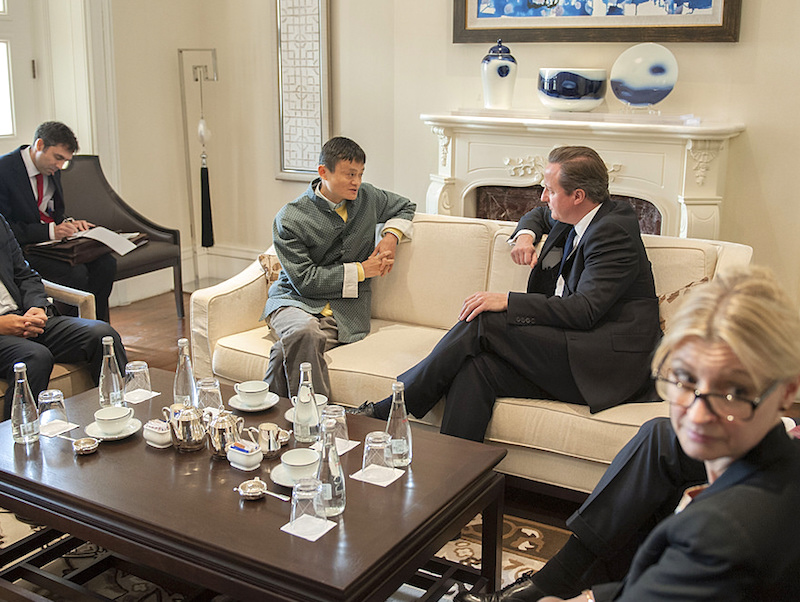In mid-September, rumours swirled that Huawei Technologies, the world’s largest telecommunications firm, would be acquired by an unnamed Chinese state-owned enterprise (SOE), effectively nationalising the company, which operates in 170 countries.
The rumours were substantial enough to warrant a response from Huawei, who denied reports of “acquisition by state-owned capital,” emphasising that they remained “a private enterprise whose employees hold all the stakes.”
It is difficult to determine to what degree such reports have validity. They do, however, coincide with a broader trend throughout China’s economy, and tech sector in particular, where the lines between the state and private enterprise are growing increasingly blurry.
The state advances, the people retreat
The past few years have seen a consistent expansion of state power throughout China, with the Communist Party taking a larger role in areas from which it had pulled back since the reforms of Deng Xiaoping in the 1980s.
Many entrepreneurs are finding that success is beginning to lie more on complying with party initiatives, and less on market-based dynamics.
The expansion of the party-state is extending into China’s increasingly-important tech sector as well. Before the 19th National Congress of the Communist Party of China in October of 2017, the Wall Street Journal reported that government regulators had discussed acquiring stakes in social media giants Tencent and Weibo, and an Alibaba subsidiary. Chinese state-backed venture capital has also swelled in recent years, with over 1,000 funds managing nearly US $800 billion, according to one 2017 estimate.
Although often criticised for their waste and inefficiency, the state sector in China is seeing a return to primacy in China’s economy, as Xi has called for SOEs to “continue to become stronger, better and larger” and stated that suggestions they should be diminished were “wrong and one-sided”. With the government currently amidst a crackdown on risky lending practices, private firms have been disproportionately affected, and state-owned companies, with more stable access to credit, have swooped in to acquire cash-strapped private enterprises.
Beanbag chairs, trampolines, and ‘party-building’
While the state sector in China is undergoing a remarkable expansion, it is also worth noting a dramatic change in the governance and culture of the country’s private-sector technology firms. Founders are finding that control over their companies is becoming increasingly limited by the authority and objectives of the Communist Party.
Wang Xiaochuan, CEO of Sogou, a Tencent-backed search engine, explained this dynamic explicitly in a quote leaked in March of this year:
We’re entering an era in which we'll be fused together. It might be that there will be a request to establish a Party committee within your company, or that you should let state investors take a stake, you know, as a form of mixed ownership.
At the offices of Beijing and Shenzhen’s tech firms, whose bean-bag chairs, trampolines, and playground-style slides have offered a refreshing contrast to China’s formal and intimidating state-owned firms, propaganda praising Xi and the party is becoming more prominent (see some examples at video-streaming platform Bilibili here). A number of workers from leading ecommerce, entertainment, and social media platforms have spoken of how their companies’ governance structures have recently changed, with added emphasis being placed on the CEOs’ role as chairman of the firm’s party committee.
Many entrepreneurs are finding that success is beginning to lie more on complying with party initiatives, and less on market-based dynamics. In an interview with the Financial Times in August, Xu Zewei, founder of fintech company 91finance and a Communist Party member, spoke candidly about the advantage his company receives by emphasising allegiance to the party.
As soon as we began to grow as a company, we established a party cell. Party construction has always been very good for corporate development … We also have clear signs for those who are party members in our office. We call them ‘shining talents’. We hold meetings for those who are not yet members, in case they are interested in joining.
While Communist Party cells have long remained fixtures of state-owned firms, this has not always been the case for private firms, startups, or foreign joint-ventures within China. Now, however, active party committees are viewed as mandatory. According to several sources either currently or previously employed by private Chinese companies, these cells are also established at the companies’ overseas subsidiaries, which may place them in violation of local laws.
This also impacts the ways that these firms’ top executives present themselves. Business leaders at private firms as well as state-owned ones are expected to operate in accordance with a “one post, double duty (一岗双责) principle,” in which they are responsible for pursuing both the company’s business interests, as well as those of the Communist Party.
This demands a more low-key and compliant style from leaders, as opposed to the high-profile approach to self-promotion that had vaulted Chinese entrepreneurs to superstar-status in the past. In conversations with numerous founders and CEOs, publicity-shy Tencent CEO Pony Ma has frequently been referenced as a model to follow. The Tencent chief contrasts sharply with Alibaba’s Jack Ma, JD.com’s Richard Liu, and Tsinghua Unigroup’s Zhao Weiguo, all known for their larger-than-life personalities and independent-mindedness.
In September, Jack Ma announced he would resign from his position as chairman of Alibaba Group, while Zhao resigned as head of key Unigroup subsidiaries in April, and was replaced on parent company Tsinghua Holdings’ board by his company’s Communist Party secretary. While Liu remains in charge at JD, he has been embattled by doubts over the company’s strategic direction, and allegations of sexual assault in the US, and has been absent at high-profile government-sponsored events.
A blessing and a curse
As ties grow tighter between the Chinese business world and the Chinese Communist Party, the benefits of such powerful backing carries drawbacks as well. “It’s a devil’s bargain,” explained the Financial Times’ Emily Feng in the World Tech Founders podcast. “Certain tech companies have flourished with party support, but that also means that they remain beholden to the party’s beck and call.”
For China’s growing tech firms, their identity is increasingly tied to the party, for better or worse.


